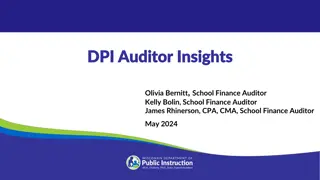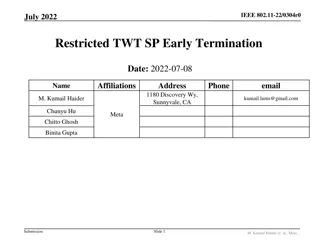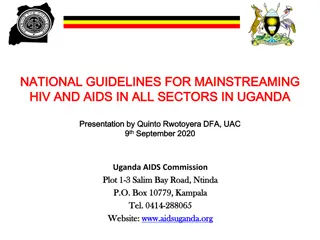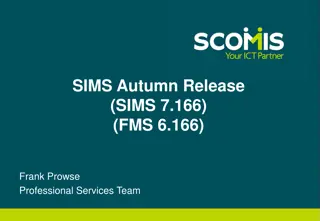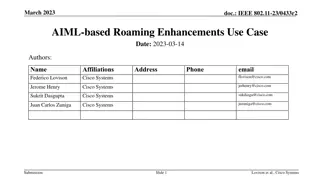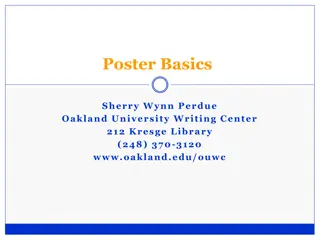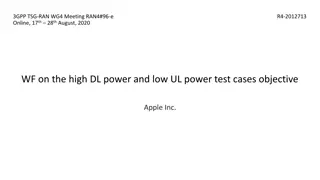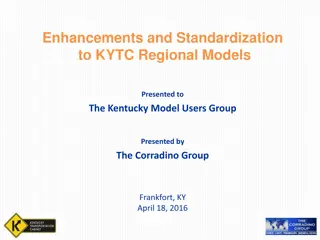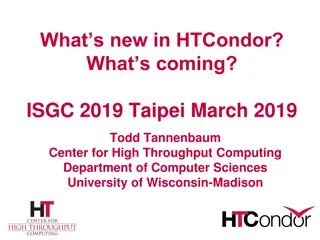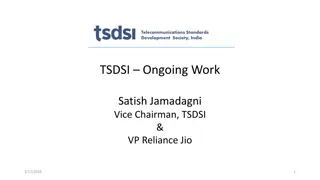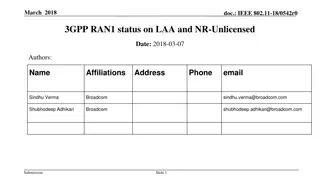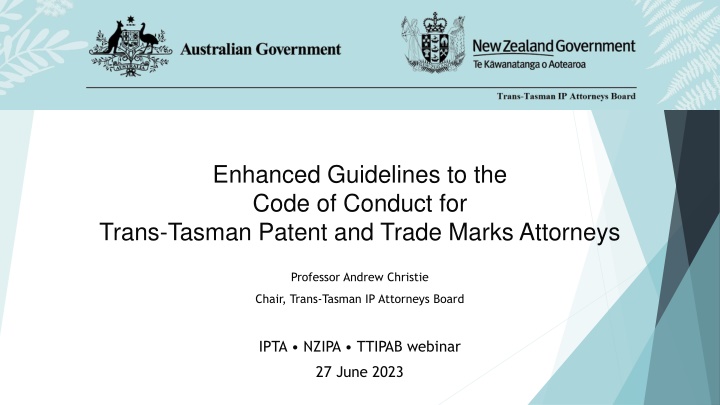
Enhanced Guidelines for Trans-Tasman Attorneys on Code of Conduct
Discover the enhanced guidelines for the Code of Conduct tailored for Trans-Tasman Patent and Trade Marks Attorneys, addressing issues like conflicts of interest and the importance of ongoing monitoring for conflicts. Learn about the significant updates to ensure ethical practices in the legal profession.
Download Presentation

Please find below an Image/Link to download the presentation.
The content on the website is provided AS IS for your information and personal use only. It may not be sold, licensed, or shared on other websites without obtaining consent from the author. If you encounter any issues during the download, it is possible that the publisher has removed the file from their server.
You are allowed to download the files provided on this website for personal or commercial use, subject to the condition that they are used lawfully. All files are the property of their respective owners.
The content on the website is provided AS IS for your information and personal use only. It may not be sold, licensed, or shared on other websites without obtaining consent from the author.
E N D
Presentation Transcript
Enhanced Guidelines to the Code of Conduct for Trans-Tasman Patent and Trade Marks Attorneys Professor Andrew Christie Chair, Trans-Tasman IP Attorneys Board IPTA NZIPA TTIPAB webinar 27 June 2023
Why make Enhancements? Response to findings of the 2021 Health Check of the Code of Conduct Awareness and understanding of the Code? generally satisfactory scope to improve among junior attorneys significant scope to improve among clients without an attorney on staff Deficiencies or problems with the Code? no major deficiencies or problems with content significant scope to provide more guidance on application of content on specific issues 2
Enhancements Conflicts (s.20) Concern An attorney may fail to check for conflicts when an attorney from another firm is recruited or when firms merge Guidelines New para 20.5 Obligation to avoidthe creation of actual or reasonable possibility of conflict is ongoing i.e., extends beyond initial acceptance of work Attorney should monitor for actual or reasonable possibility of conflict throughout the life of a matter, especially when a major change in the conduct of the attorney s practice occurs e.g., new staff or merger 4
Enhancements Conflicts (s.20) cont. Concern An attorney may put themselves in the position of actual or possible conflict if they take a proprietary or financial interest in IP rightsin respect of which the attorney is acting for a client Guidelines New para 20.6 Significant care is required Before taking and while holding an interest in client s IP rights, must assess for potential of attorney s and client s interest to come into conflict Where is actual or reasonable possibility of conflict, must take all reasonable steps to avoid/resolve conflict - may require attorney to not act or hold interest, or cease to do so 5
Enhancements Conflicts (s.20) cont. Concern An attorney may put themselves in the position of actual or possible conflict if they act as the named opponent in a strawperson opposition Guidelines New para 20.7 Strong possibility of a conflict of interest arising, so very significant care is required Before and while acting, must assess for potential of attorney s interest and client s interest to come into conflict Where is actual or reasonable possibility of conflict, must take all reasonable steps to avoid/resolve conflict - may require attorney to not act or to cease to act 6
Enhancements Loyalty (s.19) Concern An attorney should not act to oppose or invalidate an IP right the application for which the attorney drafted and/or prosecuted on behalf of a former client Guidelines New para 19.8 Former clients owned a duty of confidentiality, but not a duty of loyalty Nevertheless, an attorney should not act to oppose/invalidate an IP application they have drafted, because it would undermine the integrity of the profession in the eyes of the public 7
Enhancements Loyalty (s.19) cont. Concern An attorney doing work under contractwith another attorney may fail to consider who is the client for the purpose of the loyalty obligations Guidelines New para 19.9 An attorney must be vigilant in identifying clients to whom an obligation of loyalty is owed Client is the person for whom the benefit of work is undertaken, which is not the necessarily the person instructing the work to be done Loyalty duties operate in respect of all persons for whom an attorney undertakes work, both on own account and under contract with another attorney 8
Enhancements Disclosure (s.17) Concern An attorney might white label workof another attorney, with the client not aware of who has done the work Guidelines New para 17.4 A client should know the identity of the person who has undertaken attorney work for them Duty of disclosure requires an attorney to inform the client of the identity of any person who has undertaken attorney work for the client, where that person is not the attorney or a member of the attorney s firm 9
Enhancements Confidentiality (s.18) Concern An attorney may not treat as confidential information disclosed by a client, of which the attorney was not aware, but which could have been ascertained by the search of a register Guidelines New para 18.4 Characteristic of being confidential is relative, not absolute Information disclosed by a client (e.g., about an application for an IP right) that is not generally available and was not previously known by attorney is to be treated as confidential,even if it could have been ascertained from a public source (e.g., by searching a register), if doing so requires not insignificant effort 10
Enhancements Competency (s.14) Concern An attorney working outside core attorney practice (e.g., advising on finance, taxation, IP asset auditing) may not have sufficient expertise Guidelines Revised paras 14.1 and 14.2 Obligations of competency, and reasonable skill/care, apply to all work undertaken by an attorney - not justdrafting/prosecuting IP rights applications and advising on validity/infringement of IP rights The work an attorney must not undertake without suitable competency includes finance, taxation, IP asset auditing, licensing, competition law 11
Enhancements Competency (s.14) Concern An attorney may receive instructions orally, or give advice orally, without making file notes Guidelines New para 14.4 Difficulties can arise where instructions and advice are provided orally, as recollections may differ Unless client expressly instructs otherwise, a written record of oral instructions and advice should be made and supplied to client 12
Enhancements Integrity (s.13) Concern An attorney s critical commentary about another attorney might be regarded as crossing the line of acceptable conduct Guidelines Revised para 13.4 An attorney must exercise caution when commenting on the practice or behaviour of another attorney Commentary that is subjective and inaccurate may breach the obligation of integrity 13
Enhancements Integrity (s.13) cont. Concern Unlike the legal professions code of conduct, the Code does not expressly prohibit harassment, bullying, etc. Guidelines New para 13.6 Behaviour that constitutes unlawful discrimination, harassment, bullying or violence is inconsistent with the obligation of integrity Obligation not to behave in this manner applies to all persons with whom attorney engages professionally 14
Enhancements Independence (s.21) Concern An attorney may become aware only very close to the deadline for acting that they are being instructed to act in a proceeding against a client of another member of their ownership group Guidelines New para 21.5 [ current para 20.4] Take (only) the urgent action that is necessary to maintain the client s rights, even though the registered attorney has not yet received (and may not receive) the client s informed consent to act 15
Enhancements Ownership (s.23) Concern Group firmsare not clearly disclosing to the public their membership of an ownership group and the identity of the other members of that group Guidelines New para 23.4 What constitutes clear disclosure to the public is not necessarily the same as clear disclosure to a client A group firm should have a prominent, clear and simple presentation of the requisite information about group ownership on its public material, including on the home page of its website 16
Enhancements Communication (s.16) Concern Clients are not aware of who is responsible for administering the Code of Conduct Guidelines New para 16.6 When an attorney informs a new client that they are bound by the Code of Conduct, identify, and provide the contact details of, the Board as the responsible authority 17



